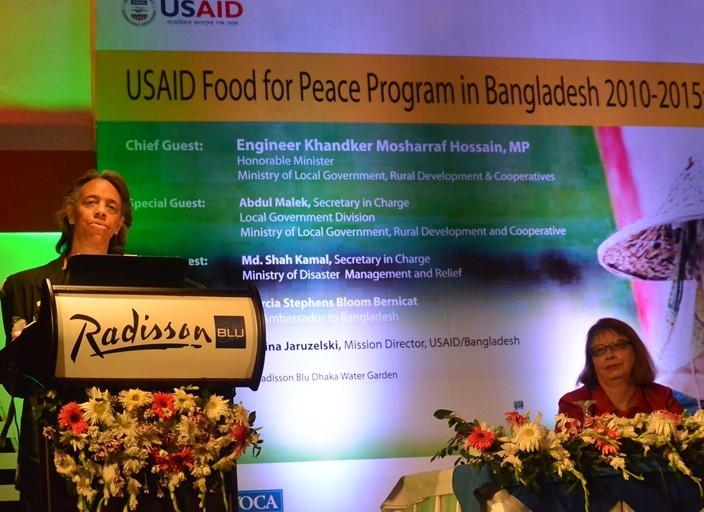
For Immediate Release
The U.S. Agency for International Development (USAID) presented the achievements and lessons learned from the most recent phase of its Food for Peace program at an event widely attended by prominent members of the Government of Bangladesh, as well as development partners and practitioners, international and local NGOs, implementing partners, media, and other stakeholders. The U.S. Ambassador to Bangladesh Marcia Bernicat, USAID Bangladesh Mission Director Janina Jaruzelski, and Bangladesh’s Minister of Local Government, Rural Development & Cooperatives Khandaker Mosharraf Hossain attended the event.
Since 2010, the Food for Peace program has played an integral role in ensuring food security and nutrition for households at the grassroots level. Through the Food for Peace program, USAID partnered with local government, traditional leaders and civil society groups to educate people, especially the poorest and most vulnerable, about nutrition, water and sanitation. These programs focused on extremely poor people living in the south, southwest and northern regions, many of whom were landless and extremely malnourished. Since its inception in May 2010, the current five-year, $210 million Food for Peace program reached more than 3.5 million people through activities to improve food security, nutrition, and disaster preparedness in some of the poorest and most vulnerable areas of the country. Although this phase of the program will end this year, a new five-year, $180 million phase will follow. The USAID-funded Food for Peace program has been implemented by CARE, Save the Children International, and ACDI/VOCA, in close collaboration with the Government of Bangladesh.







Comment
Make a general inquiry or suggest an improvement.